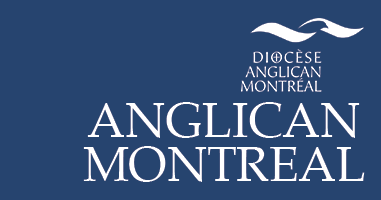Imagine that you are in a high school class, filled with a bunch of seemingly interested teenagers. At the front of the class, a kind-hearted woman is leading her students in yet another discussion on their future plans and goals. As a know-it-all teenager sitting in that class, I thought I knew the direction I wanted for my life.
What amazed me were the kids that seemed to have their life plans detailed out. Though I never thought there was anything wrong with this approach, I just never could imagine how one could stay on a planned path, as there are so many life events that could easily throw you off course. You see, as a child, I was a product of divorce that brought me from Alberta to Quebec and so, instead of being confident in my future plans, I had adopted the attitude of “we’ll see what the future is when we get there”.
The summer after graduating high school, I attended a Christian camp. The messages around life’s plans and direction were pretty much the same, but this time they were painted in an air of religious platitude. “Life is about doing God’s will; this is his path for you; be that person God wants you to be.” One counsellor went so far to say, “Jessica, God has shown us what kind of person he wants you to be. You just have to live up to that potential.” I never really understood what this meant. Why would God tell someone else who I am meant to be when I am here, available for that discussion?
What was more uncomfortable for me was the well-intentioned staff who tried to get me to act like them; to conform to their ideas of how to be a good person, but more importantly, adhere to the criteria of how to be a good Christian. How often has the church used this type of language? On one hand, we tell people that God is all loving and all accepting, and on the other, if they do not fit into this mold, pray this way, look like us well then…they just aren’t Christian.
As people start to emerge from the pandemic cocoon, the world reawakens to a new reality. We have been “woke” to the experiences, the abuse, and the pain of the indigenous community, black community, women and children. One benefit of the pandemic is that the world has slowed enough so that we have been able to see and hear each other. We can no longer dispute or deny the negative experiences that the wounded have shared.
So, what’s next? Having heard these stories and seen the results of a small portion of these experiences, the church (from parishioner to the Anglican Communion) needs to take a good look at itself and like the graduating student decide: Who are we? What do we represent? What is our message? How do we practice what we preach? Even more importantly: What is the church’s role in this world?
Mark 12:30-31 says God’s two commandments are, “Love the Lord your God with all your heart and with all your soul and with all your mind and with all your strength.’ And: ‘Love your neighbor as yourself. There is no commandment greater than these.” This passage maybe a good place to start the conversation.
To love God seems like an easy task. The question is, do you love God for who you believe God to be or for who God truly is? To love God as they love us, we must nurture a relationship that allows our mind, heart, and soul to be open to all that God is. By doing so, we are opening ourselves to something that “can do infinitely more than we can ask or imagine”. When we limit, label, or put God in a finely labelled box of our understanding, we disallow the very nature and essence of God.
This dynamic can also be applied in loving our neighbours. To love our neighbors as ourselves is a message of equality. It is not our role to “convert” our neighbors into cookie cutter Christians, but to love them for who they are. Throughout Jesus’ ministry, he met people where they were. By sharing love and acceptance, people chose to change. Although we see examples in the Bible of people leaving their “sinful ways”, these personal decisions to change are not made from a position of conformity. In that brief encounter with Jesus, those individuals felt loved, and seen.
Finally, God has created each person with gifts, talents and abilities to serve, minister and foster the love of God based on their own capabilities. This capacity does not lie solely within ordained ministry, but with all those who wish to emit love in the world. It is imperative that we take the time to love ourselves by caring for our emotional needs and wellness. By doing so, we can encounter others from a healthy place. When love is replaced with power, control, money, prestige and self-interest, then we lose our purpose and become disconnected from God…from love.
The church and its members are at a junction and it is time to re-evaluate our message, ministry, even self- expression of individual faith so to ensure we communicate, offer, and provide love. As we engage in this time of discernment, we must remember it is our responsibility to:
• guarantee safe spaces for people to heal, grow, nurture and strengthen in love (aka God).
• advocate by standing with and for those whose voices have been silenced, persecuted and whose rights have been abused or oppressed.
• share our stories and experiences of God’s love not just through words, but through actions.
Like the student whose future life goals got misdirected, so too has the church gone down its unintended path. To find the right direction, we need to find our bearings and no matter what priority we feel is the greatest, in actuality the greatest of these is love.


